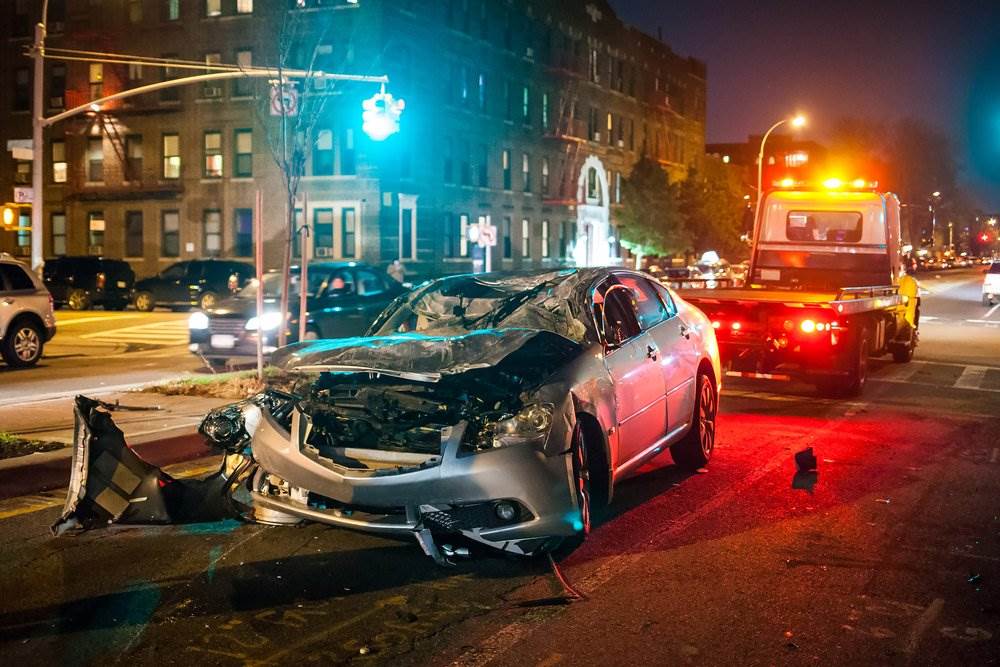Under Arizona law, DUI with serious injury or fatal accident is the crime where people drive under the influence and either seriously injure or kill another person. Prosecutors can charge the offense in a variety of different ways depending on the facts of the case, including as aggravated DUI under ARS 28-1383, aggravated assault under ARS 13-1204, endangerment under ARS 13-1201, and manslaughter under ARS 13-1103. A violation of these code sections are felony offenses punishable by years in state prison.
Examples
- seriously injuring a pedestrian while driving intoxicated.
- operating a motor vehicle when drunk and killing another motorist in a car accident.
- drunk driving with a group of passengers in the car and injuring a passenger after hitting a tree.
Defenses
Motorists accused under one of the above statutes can challenge the accusation with a legal defense. A few common defenses include defendants showing that:
- they were not driving under the influence,
- they did not act recklessly, and/or
- the police violated one of their constitutional rights.
Penalties
A DUI with a serious injury or fatal accident is a felony offense in Arizona (as opposed to a misdemeanor). The crime is punishable by:
- custody in state prison, and/or
- a costly fine.
In this article, our Phoenix Arizona criminal defense attorneys/DUI defense lawyers will discuss what the law is under these statutes, defenses available if charged, the penalties for a conviction, and related crimes.

DUI with serious injury or fatal accident is the Arizona crime where people drive under the influence and either seriously injure or kill another person.
1. How does Arizona law define “DUI with serious injury or fatal accident”?
In general, a prosecutor must prove the following elements to successfully convict a driver of DUI with serious injury or fatal accident:
- the defendant drove or was in actual physical control of a motor vehicle while under the influence (of alcohol and/or drugs), or
- the defendant drove or was in actual physical control of a vehicle with a blood alcohol concentration (BAC) above the legal limit of .08%, and
- the accused caused a DUI accident that involved either a serious physical injury to another person or the death of another party.1
A prosecutor may have to prove additional elements depending on the specific statute that he/she files the case under.
Note that a prosecutor can charge this crime in a variety of different ways depending on the particular facts of the case. For example, a D.A. can charge the offense as any of the following criminal charges:
- aggravated Arizona DUI, per ARS 28-1383,
- aggravated assault, per ARS 13-1204,
- endangerment, per ARS 13-1201, and/or
- manslaughter, per ARS 13-1103.
An aggravated DUI is a type of felony DUI that involves certain aggravating circumstances.2
Aggravated assault in these cases is where a driver intentionally commits assault through the use of a deadly weapon or a dangerous instrument. Arizona’s DUI laws say that a vehicle can be considered a deadly weapon.3
Endangerment is where an intoxicated motorist drives recklessly and puts someone at risk of imminent death or serious personal injury.4
Manslaughter is the crime where a driver recklessly causes the death of another person.5
2. Are defenses available?
Yes. DUI attorneys draw upon several legal strategies to help clients contest charges under these statutes. Three common ones include a defense lawyer showing that:
- a defendant was not driving under the influence.
- a defendant did not act recklessly.
- a police officer violated one of the accused’s constitutional rights.
2.1. Not driving under the influence
Recall that in these cases defendants are only guilty if they caused injuries or fatalities while driving “under the influence.” If the police did not conduct a breathalyzer test or blood test, a defendant can challenge a charge by showing that he/she was not intoxicated or under the influence at the time of the accident.
2.2. No reckless act
This is a valid defense to charges of either endangerment or manslaughter. Recall that both crimes require a motorist to act recklessly. Further, “recklessness” has a precise definition under Arizona law.6 A defense, therefore, is for an accused to show that he/she did not commit a reckless act.
2.3. Violation of a constitutional right
Defendants can always contest a DUI charge by showing that law enforcement violated one of their constitutional rights. For example, maybe the police conducted an unlawful search or seizure or stopped or arrested the defendant without probable cause. In these situations, a defendant can attempt to use the violation to try and get a DUI charge reduced or even dropped altogether.

An aggravated DUI can lead to a lengthy prison sentence, depending on the accused’s BAC level.
3. What are the penalties for this DUI offense?
The penalties for a DUI with a serious injury or fatal accident depend on what crime a driver ultimately gets convicted of.
All of the crimes mentioned above are felony offenses that result in time in state prison (as opposed to jail time).
The prison term for aggravated DUI depends on the defendant’s BAC level at the time of the arrest:
| BAC Level | Mandatory Minimum Jail Time |
| .08% to .149%
(Impaired or Per Se DUI) |
First offense: 10 days
Second or subsequent offense: 90 days |
| .15% to .199% | First offense: 30 days
Second or subsequent offense: 120 days |
| .20% or higher | First offense: 45 days
Second or subsequent offense: 180 days |
Aggravated assault convictions typically lead to prison terms of five years.
Endangerment is a felony offense that often results in a two-year prison term.
Manslaughter is a Class 2 felony that can lead to 10 years or more in prison.
4. Are there related offenses?
There are three crimes related to DUI with a serious injury or fatal accident. These are:
- DUI – ARS 28-1381A1,
- DUI with a passenger under 15 – ARS 28-1383A3, and
- DUI on an invalid license – ARS 28-1383A1.
4.1. DUI – ARS 28-1381A1
Under ARS 28-1381A1, DUI is the offense where someone drives or is in actual physical control of a motor vehicle while under the influence of:
- alcohol,
- drugs,
- a vapor releasing substance containing a toxic substance, or
- any combination of liquor, drugs, or vapor.
Unlike with the crimes discussed above, a first-time DUI is a misdemeanor offense. People guilty of the crime can face:
- jail time,
- a 90-day driver’s license revocation,
- the installation of an ignition interlock device for 1 year,
- drug and alcohol screening, education, or treatment,
- traffic survival school course, and/or
- community service.
4.2. DUI with a passenger under 15 – ARS 28-1383A3
Per ARS 28-1383A3, impaired driving with a passenger under the age of 15 is the crime where people drive drunk while having a passenger in the vehicle who is under 15 years of age.
A violation of this law is a type of aggravated DUI that can result in a felony conviction punishable in accordance with the above table regarding BAC levels.
4.3. DUI on an invalid license – ARS 28-1383A1
Per ARS 28-1383A1, DUI on an invalid license is the crime where people drive under the influence after a driver’s license suspension, license revocation, or license cancelation.
As with charges of DUI with a serious injury or fatal accident, defendants can contest charges under this law with the defense that law enforcement violated one of their constitutional rights.
For additional help…

Call us for help
For additional guidance or to discuss your case with a criminal defense lawyer, we invite you to contact our law firm/law office at the Shouse Law Group. Our legal team provides both free initial consultations and legal advice you can trust.
Our DUI attorneys also represent clients throughout the State of Arizona, including those in Mesa, Chandler, Maricopa County, Scottsdale, and Gilbert.
Legal References:
- See, for example, State v. Germain (1986) 150 Ariz. 287.
- Arizona Revised Statutes 28-1383.
- ARS 13-1204.
- ARS 13-1201.
- ARS 13-1103.
- Arizona’s criminal laws say that a person acts recklessly when they are aware of and consciously disregard a substantial and unjustifiable risk. See State ex rel. Thomas v. Duncan (2007) 216 Ariz. 260.
